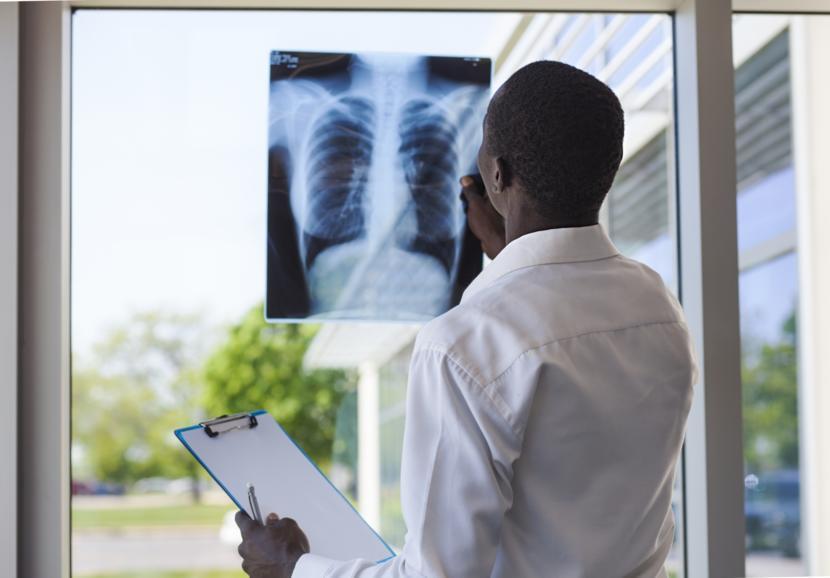What a Lung Transplantation for Cystic Fibrosis Is Really Like

Cystic fibrosis has been one of the more devastating and debilitating diseases to take hold of the population. The condition has forced countless research studies, clinical trials, and innovative treatments to try and mitigate the symptoms and effects of cystic fibrosis. One of the riskier but possibly rewarding treatments is that of lung transplantation.
Getting a lung transplant can be life-changing for cystic fibrosis patients, but there are some things to consider before trying it as a treatment for someone's condition.
In this article, we are going to attempt to give you as much information about lung transplants as possible so that you can make an informed decision on whether to pursue it as a treatment for you or a loved one with cystic fibrosis. Remember to always bring any research findings or questions to your healthcare team.
What a lung transplant does and does not do
It is important to understand what exactly a successful lung transplant will entail for a patient. A lung transplant will not cure cystic fibrosis, as you will still have CF and CF symptoms in other parts of the body. You will still need to continue to treat your CF as you were before. However, getting a lung transplant does ensure that your lungs are healthy and unaffected by cystic fibrosis, which will help improve both quality of life and life span.
Having a healthy pair of lungs has a long list of benefits. You will no longer have as many issues with your breathing and may be able to do certain things that your shortness of breath kept you from doing before. You will also have a much stronger respiratory system and won't be at as much of a risk for certain debilitating lung diseases that can take hold alongside cystic fibrosis. In some rare cases, cystic fibrosis patients have even been able to go back to playing high intensity sports after their operations.
Thinking about the risks
As with any medical procedure, lung transplants do have some risks involved:
Organ rejection - Your body and its immune system are designed to detect things that aren't supposed to be in your body like viruses, bacteria, or cancer cells. The body then kills these cells and destroys them, essentially rejecting their arrival into the body. Unfortunately, this can happen with organs as well. It is possible that your body might mistake a new set of lungs as a foreign body similar to cancer cells or a virus. If this happens, your body will reject the lungs the same way it does to viruses and bacteria, attempting to kill the cells and refuse to accept the lungs and get them working with the other organs of the body. Thankfully, this sounds a lot worse than it really is. Organ rejection is not a death sentence and is very treatable, especially if it is caught early. You may need to go back to the hospital in order to treat the rejection, but having the treatment is important in getting your new lungs accepted by your body. Generally, organ rejection is detected by the organ not functioning properly, and patients also often get flu-like symptoms during the rejection. If you notice anything out of the ordinary after your procedure, be sure to talk with your doctor as soon as possible.
Chronic Lung Allograft Dysfunction - Chronic lung allograft dysfunction (CLAD) is the significant loss of lung function that can occur after a lung transplant procedure. Little is known about the mechanisms of CLAD and how it operates. Some transplant patients experience a rapid deterioration of the lungs immediately after the transplant, while others can be stable for a number of years before CLAD becomes a problem. It is estimated that 50 percent of those that have undergone a lung transplant procedure will have CLAD within 3 years of their operation. This once again is very treatable as long as it is caught. Be sure to follow up with your transplant team as long as possible to monitor your lung's condition, and if you start noticing anything out of the ordinary, contact your transplant team right away.
Infections - A common occurrence after any type of transplant is the patient getting different types of infections. This is due to the fact that transplant patients are often put on medications called immunosuppressants, which reduce the effectiveness of the immune system. This is often necessary to prevent the immune system from attacking and rejecting the new organ, but it also means that the immune system will not be strong enough to fight off other viruses or bacteria that enter the body. These infections can range from mild to dangerous, so like always, be sure to check up with your doctors often and notify them if something changes in your health after the transplant.
Increased cancer risk - As stated above, after a transplant you will have to take immunosuppressants for a long time (likely for the rest of your life) which will decrease the effectiveness of your immune system. The immune system is what primarily kills cancer cells in your body, so these immunosuppressants can then increase the chance of you developing cancer at some point.
What to keep in mindfor when considering a transplant
The decision of whether or not a transplant happens is ultimately up to the patient. Some patients choose to inherit the risks for the chance of having healthier lungs and a greater ability to do certain activities. Others decide that the risk is too great and they would rather live out their life with their current treatments on their own terms. Neither of these decisions is wrong or bad, and it is ultimately up to the patient (and their medical professionals) to determine what is the best option for them. If you decide that you want to try and move forward with a transplant for yourself or a loved one, here are a few things you need to consider:
Talk extensively with your doctor - We cannot possibly know about you or your condition, and there may be certain reasons why a transplant is viable for you and your condition. You should first talk to your primary doctors about wanting the transplant and asking them if they think it would be beneficial for you. You can always get a second opinion if you want, but it’s best to first consult the doctors that know you and your condition the best.
Transplants are limited - A lung transplant is not the same as a kidney transplant. A relative or kind-hearted soul cannot give you their lungs. That means that your lungs would come from one of many organ donors who gave their organs up after death. The problem is that these organs are in very limited supply, which means that transplants are reserved for a select few patients. Doctors will only proceed if a lung transplant if it is determined that the patient is within the "transplant window”. The "transplant window" refers to doctors considering if the patient is sick enough to need a lung transplant, while also considering if the patient's body is healthy enough to survive the actual transplant and recovery process. Don't worry if you are declined when looking for a lung transplant. There are a wide variety of treatments out there that can improve your quality of life without such intrusive measures.
Final thoughts
We hope that this article has helped inform you about the risks and benefits of a lung transplant procedure. Be sure to talk to your doctor before thinking about any major medical procedures. For more information on cystic fibrosis treatments, studies, and procedures, be sure to visit the rest of our website.
References
http://www.cysticfibrosisjournal.com/article/S1569-1993(17)30810-X/fulltext
















